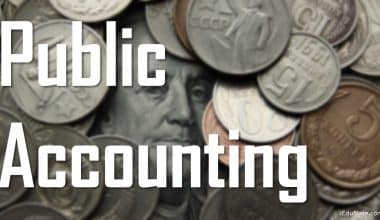Being a taxpayer isn’t fun, but you can’t avoid paying taxes. It’s almost like a necessary evil; at least if you want to keep out of trouble with the IRS. However, the question, “why do I owe state taxes?” is one many individuals ask; most especially when their attempt to file for a refund results in a tax bill. If you find yourself in this same boat, you might need to gain more insight into how state taxes work and accept the fact that you must pay them. This article will educate you on why you owe state taxes this year 2023, how it differs from federal taxes, California state taxes, and how you pay them.
Why Do I Owe State Taxes This Year 2023
Nobody enjoys having to pay taxes. However, you may be startled to find out you must pay state taxes if you did not pay federal taxes this year. In other words, why then would you owe state taxes provided you owed the federal government nothing? It’s a challenging question, isn’t it? And it happens to be one of the most prevalent causes of tax-paying confusion. Nevertheless, to start with, why do we pay taxes?
Why We Pay StateTaxes
State taxes have a variety of reasons why it was levied. Typically, this money is used to pay for social programs such as public housing, welfare, and Medicaid. Aside from that, the money is frequently used on hospitals, roads, education, state police, protection as well as many other projects.
So Why Do I Owe State Taxes
Generally, you may owe a state tax bill for a variety of reasons. Tax rules and brackets fluctuate between the states and the federal government. However, income fluctuations may influence your ability to claim some tax benefits. Nevertheless, you can get an idea of what you should be withholding by using an online paycheck calculator.
If you received a refund the previous year, you should be eligible to get another one this year if your circumstances remain the same. However, the tax years 2018 and 2019 were not the same. In February 2018, the Internal Revenue Service released updated withholding tables as part of the Tax Cuts and Jobs Act. As a result of the updated tables, many people were withholding less, resulting in a little reduction in paychecks.
Also, the changes in your income might have a great impact on your eligibility to claim some tax credits. The deductions you itemize or take may affect your state tax bill.
Again, because every scenario is different, there could be additional reasons why you owe taxes this year if you didn’t last year. Let’s talk about a few of the reasons:
#1. Changes in Tax Code
Changes in the tax legislation may have a major influence on the amount of money you pay in taxes. Even if you normally expect a refund, the new tax laws may prevent you from receiving one. Likewise, the IRS’s tax brackets may have changed, putting you in a different tax bracket. In short, changes in the tax code can make a significant difference in your tax bill. And If you fail to adjust your withholding when things change, you may owe money.
#2. When You Withhold Too Little from Your Pay
Generally, the amount deducted from your paycheck over the course of the year is an approximation of how much you’ll probably owe whenever it’s time to submit your taxes. Typically, you get a tax refund should you overpay. However, if you fail to pay sufficiently, there,s likely you may receive a bill during tax season.
#3. Failure to fight
In General, the federal tax deadline is April 15th each year. However, late fines, as well as interest, may occur if you file at a late period and therefore do not apply for an extension on time. So, it is safe to say failure to file taxes at the appropriate time is one concern that might result in unpaid taxes.
#4. Change in Deduction
Know that you might not be eligible for the deductions and credits which you’ve become comfortable expecting. The child tax credit, in other words, is a strategy most parents use to dramatically lower the amount of taxes they owe. However, this kinda credit is usually with an income cap, or perhaps your child may have reached the age of ineligibility.
#5. Employment Status
Generally, you will need to complete a Form W4 anytime your start a new job, start a side business, or change careers. This however regulates how much tax is will be deducted from each of your paychecks. And according to the IRS, you have one of most taxes taken will result in a refund. Nevertheless, there are other bonuses, such as recruitment or retention bonuses, that can result in tax liabilities.
There are other circumstances that may also affect your state tax filing:
- If you’re self-employed, you may be underpaying anticipated quarterly taxes.
- Getting married or divorcing is a big decision.
- The process of becoming a widow (er)
- Having a baby
- Launching your business
- Not being able to claim a child as a dependency any longer
- Gambling winnings.
- Difficulty making quarterly estimated taxes
- For the first time, you’re receiving Social Security benefits.
- Taking money out of a 401(k) or an IRA
- Purchasing or selling a residence
Why Do I Owe State Taxes California
Generally, 43 states collect state income taxes are in the united state. However, each state has its own set of taxes, which are computed in a different way. At 13.3 percent, California has the highest state income tax rate in the country. There are also states that do not levy an income tax but have other means of revenue collection.
Whether you’re submitting an individual tax return or a business tax return, tax season is always stressful. However, several people are baffled as to why their taxes appear to be so high, while some will be asking why do I owe California state taxes. Nevertheless, below are some of the reasons for this might happen:
#1. Errors on Tax Return
As a taxpayer, it is critical that you confirm the information you are providing is 100% accurate while you’re preparing your tax returns with FTB. However, it may lead to a tax bill if a person files for an improper tax credit or calculates the wrong state taxes amount.
#2. Late Tax Returns Penalty
The day after a taxpayer fails to file their tax return, they may be charged late costs. As such, you may owe California state taxes. Generally, in California, taxpayers face a penalty of more than 5% for each month they fail to file their taxes.
#3. Unpaid Child Support
Not paying child support is another reason why you may owe California state taxes. Generally, the Financial Franchise Board (FTB) has the authority to send a charge to a parent who has not paid their child support payments on time. Likewise, if you fail to pay child support, the FTB may deduct money from your paycheck until you pay the past-due total. The FTB can even place a tax lien on a taxpayer’s property. This will allow confiscation of such property if you fail to pay child support.
#4. Failure to Pay Tax Debt
Generally, it may be difficult for taxpayers who are unable to pay their entire tax payment to reduce their debt. You will owe California state taxes and almost certainly be liable to tax penalties on top of your tax debt. This is if you do not have a payment plan with the Financial Times Borrower’s Bureau (FTB).
#5. Business Tax Debt
In a situation where business owners or executives lack the financial means to pay their taxes, they may be accountable for the company’s debts. This however may result in the business owners being saddled with the cost when it comes to paying VAT as well as other business taxes.
Why Do I Owe State Taxes But Not Federal
The United States has a three-tiered income tax system, with taxes levied by the federal, state, and municipal governments. In that they apply a percentage rate to taxable incomes, federal and state income taxes are identical. They differ significantly, however, in terms of those rates and how they are implemented
Generally, the federal government, as well as all 50 states, have the authority to collect taxes. There are 43 states that have a state income tax, with California charging a whopping 13.3%. However, you must file a state tax return in addition to your federal tax return when filing your taxes.
Normally, federal taxes are for everyone, regardless of where they live. The IRS requires most persons to file a tax return, with a few exceptions. However, the data you give on your federal tax return will be utilized to calculate how much federal income tax you owe.
Consequently, what factors influence whether you owe or receive a federal taxes refund? You may be eligible for a refund if a company spent too much in taxes through payroll withholdings during the year. So, you may owe more state taxes and not federal if you pay too little withholding.
However, if you live in one of the states that collect income taxes, you must file a state return. This is in addition to your federal return. Your income and the tax deductions or credits you claim determine how much you owe in state income taxes and not federal.
Another reason you may owe state taxes but not federal is that your state tax bracket may differ from that of the federal tax bracket. Likewise, the amount of taxes you pay throughout the year will determine regardless of whether you owe state taxes and not federal or receive a refund.
I Owe State Taxes How Do I Pay
There are several ways or options you can choose from to pay to the IRS and state(s) if you owe state taxes. You can pay immediately or arrange installments payment.
#1. Electronic Funds Withdrawal
You will be given the opportunity to have your payment electronically withdrawn. This is upon completing your current year’s tax return(s) with an amount owing to the IRS and/or state. You’ll be requested for the routing number as well as the account number of the bank you want to use.
#2. Mail Payment
Whenever there is a balance outstanding on your accepted return, there will be a payment voucher in the state return PDF you accept. However, when mailing your payment, try to include the voucher with the check. The check for the state tax you owe. You can always find the mailing address on the payment voucher.
#3. Credit or Debit Cards
Some states will allow taxpayers to pay their bills using debit or credit cards online, by phone, or on a mobile device. However, there may be additional charges. You can visit your state’s website for more on payment options
#4. Direct Pay
You can as well pay the state taxes you owe straight from your savings or checking account which is free.
You can also with cash in a functioning IRS retail partner. However, you will need to visit the IRS website for instructions on how to make the payment.
Conclusion
Although owing state taxes might be a financial burden, it’s critical to comprehend the causes behind a higher tax bill. However, you need to understand why you owe state taxes and not federal. Thus you can talk to a financial specialist who can assist you in identifying further strategies to reduce your tax liability as well as future occurrences.
FAQs
Why did I get state taxes but not federal?
The IRS processes federal tax returns, while your state government processes the state tax returns. These are two different administrations that work independently of each other. So, it is common for you to receive your state tax refund before you receive your federal refund.
Why do I always owe federal taxes?
In a nutshell, over-withholding means you’ll get a refund at tax time. Under-withholding means you’ll owe. Many people try to get as close as possible to even so they get more money in their paychecks during the year but don’t owe a lot or get a bigger refund at tax time
Why do I owe state taxes Turbotax?
The most likely reason is that you just didn’t have enough State Taxes withheld from your paycheck(s), and/or you didn’t have any deductions or credits to offset your income.
Why do I owe a large sum in Texas
Simply put, if you owe a large sum in taxes, it’s likely because you kept too much of your paycheck during the year and had too little withheld automatically. If you owe more than $1,000, you also have to pay a penalty to the IRS
Related Articles
- Why Do I Owe Taxes: All You Should Know, Updated
- Personal Loans vs. Other Lending Options
- IRS INTEREST RATES: THE CALCULATION & IRS INTEREST RATES UPDATED!!!
- UNEMPLOYMENT TAX FUND: Compensation, Overview & All You Need To Know
- What Is CREDIT CARD BALANCE/TRANSFER: How It Works, Positive and Negative Balance






